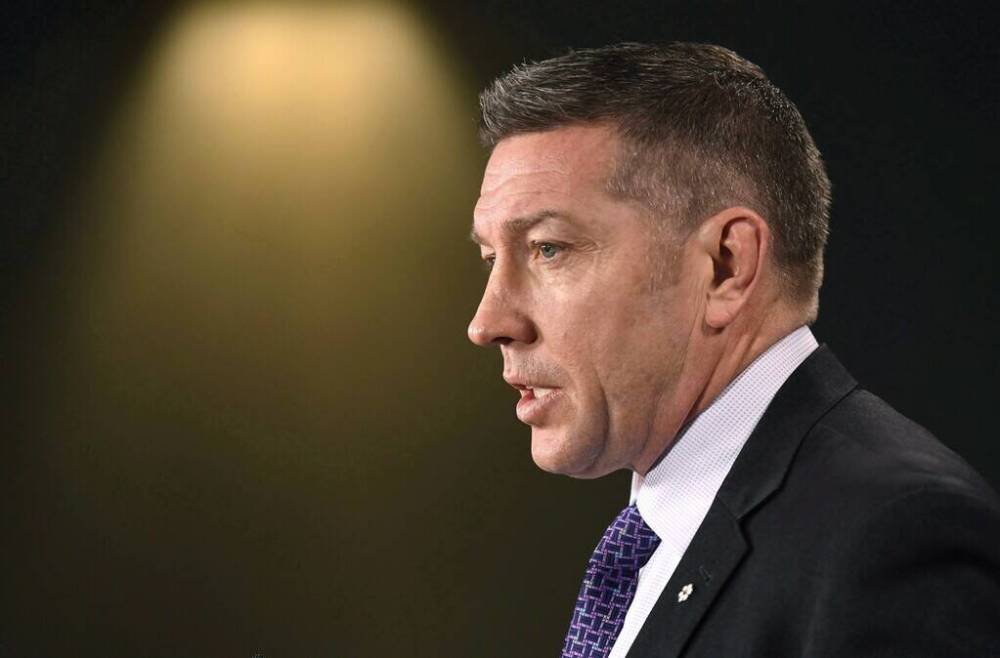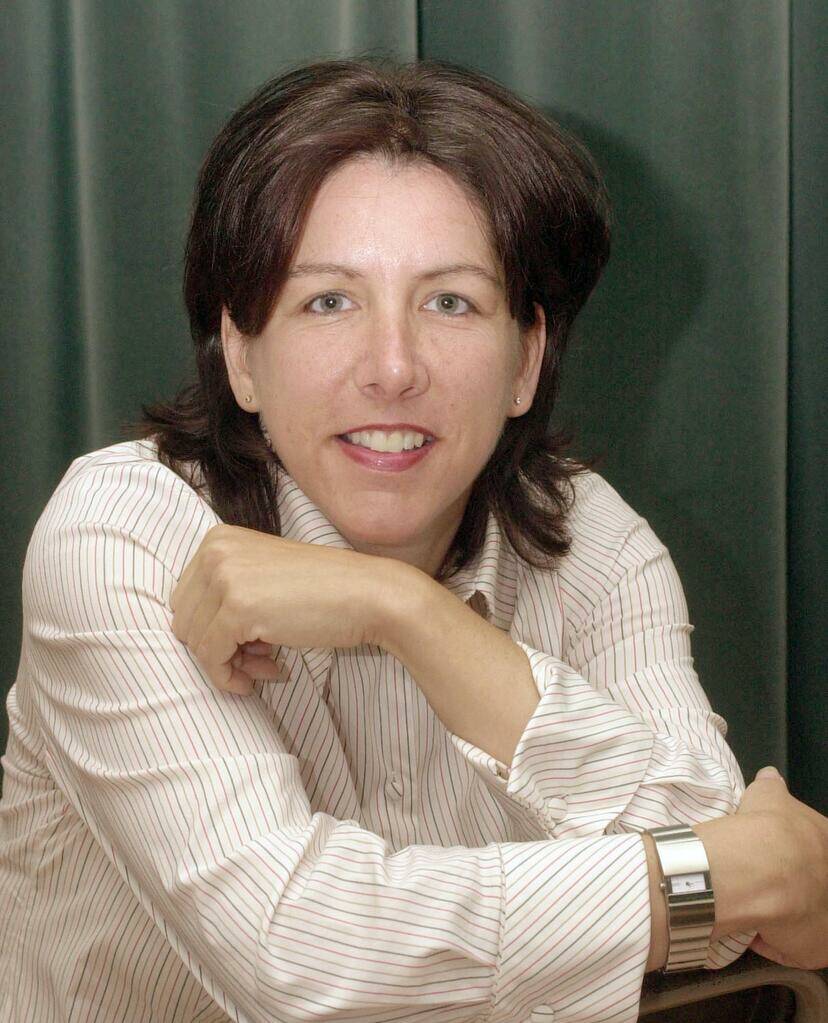Independent panel paints damaging picture of abuse in Canadian junior hockey
Troubling questions raised after CHL releases report more than a year after its completion
Advertisement
Read this article for free:
or
Already have an account? Log in here »
To continue reading, please subscribe:
Monthly Digital Subscription
$0 for the first 4 weeks*
- Enjoy unlimited reading on winnipegfreepress.com
- Read the E-Edition, our digital replica newspaper
- Access News Break, our award-winning app
- Play interactive puzzles
*No charge for 4 weeks then price increases to the regular rate of $19.00 plus GST every four weeks. Offer available to new and qualified returning subscribers only. Cancel any time.
Monthly Digital Subscription
$4.75/week*
- Enjoy unlimited reading on winnipegfreepress.com
- Read the E-Edition, our digital replica newspaper
- Access News Break, our award-winning app
- Play interactive puzzles
*Billed as $19 plus GST every four weeks. Cancel any time.
To continue reading, please subscribe:
Add Free Press access to your Brandon Sun subscription for only an additional
$1 for the first 4 weeks*
*Your next subscription payment will increase by $1.00 and you will be charged $16.99 plus GST for four weeks. After four weeks, your payment will increase to $23.99 plus GST every four weeks.
Read unlimited articles for free today:
or
Already have an account? Log in here »
Hey there, time traveller!
This article was published 22/01/2022 (1416 days ago), so information in it may no longer be current.
Elite junior hockey in Canada has a systemic culture resulting in maltreatment becoming an “embedded norm” and that incidents of off-ice misconduct are rarely reported, owing, in part, to a “code of silence”, an independent panel has found.
“… Off-ice misconduct does exist (in the Canadian Hockey League), and that the systemic culture in the League has enabled this to become a cultural norm,” states a report, released late Friday. “Maltreatment that, outside of hockey, would not be acceptable, has become an embedded behaviour in this hierarchical organization and the level of acceptance is too high.”
The CHL comprises three junior organizations, including the Western Hockey League, Ontario Hockey League and Quebec Major Junior Hockey League.

The report was written by a three-person panel – Camille Thériault, former premier of New Brunswick, Manitoban Sheldon Kennedy, former NHLer and abuse survivor and advocate, and Danièle Sauvageau, a former police officer of 33 years and Olympic gold medalist.
It was asked by the CHL to investigate allegations of bullying, discrimination and harassment within the three leagues. The results of the report were released more than a year after it was completed and presented to the CHL board of governors.
The panel was commissioned in July 2020 as a response to a class-action lawsuit against its leagues brought forward just days before, led by former players Dan Carcillo and Garrett Taylor. The CHL, along with its three member organizations and the 60 junior teams that make up those leagues, were the original defendants.
The plaintiffs claim the CHL and its teams, as well as their respective executives, “have perpetuated a toxic environment which condones violent, discriminatory, racist, sexualized, and homophobic conduct, including physical and sexual assault, on the underage players that they are obliged to protect.”
The affidavits, filed by 14 former CHL players, cover a 35-year period, between 1979 and 2014. The accusations, none of which have been proven in court, are wide-ranging and involve several disturbing instances of physical, sexual and mental abuse.
“We are deeply troubled by the allegations in the recently announced class action, many of which are historic in nature, and we believe are not indicative of the leading experience our players receive in the CHL today,” the CHL said in a press release shortly before forming the independent panel. “Regardless of the timing, we are taking the claims very seriously as the protection of our players has been and will always be our primary concern.”
The independent panel began its research months after forming, in September and October of 2020, with a presentation to the CHL, which included all three league commissioners, that December. The CHL then chose to keep the report from the public for 13 months, before its release on Friday.
The panel’s methodology included reviewing the league’s existing policies; complaints filed from the member organizations from 2017 to 2019 regarding maltreatment; interviews with some of the country’s top experts in abuse in sport; confidential interviews with agents, current and former players, coaches, owners, among others; as well as a Leger survey that was completed by 31 league GMs, 59 coaches, 98 staff members, 259 players and 212 families. What followed were 13 findings and the same number of recommendations.
The results were damning, especially when you consider the research was limited by the CHL to include only the last four years, dating back no later than 2017. It’s a time period the CHL claimed in its above-mentioned press release not to be an issue when it comes to abuse being prevalent in its ranks.
The Leger survey found that 52 per cent of families, as well as 40 per cent of staff, 32 per cent of players, 25 per cent of coaches and 23 per cent of GMs, believe bullying exists in the CHL. A total of 45 per cent of players said they had heard of cases of bullying, but only three per cent noted they reported the incident.
For those who said they had suffered some form of abuse, only 17 per cent of victims said they reported the incident to someone in the CHL. Among those who didn’t go to the league, 70 per cent said they disclosed the incident to someone close to them. The survey revealed that 65 per cent of GMs and 54 per cent of coaches don’t believe the CHL is facing any of these challenges.
“It was one of those things where you weren’t allowed to ask why? It was just part of it,” a former CHL player said in the report, when asked about his team’s culture around issues of abuse. “It was something that you just go through, you face it the best you can, even though at that age gap, it’s huge at that point in your life.”
More troubling statistics – including 41 per cent of families, 33 per cent of staff, 24 per cent of players, 20 per cent of coaches and 19 percent of GMs – believe discrimination also occurs.

It’s unclear exactly why the CHL decided to wait a year before releasing the results of the independent panel’s report, as multiple requests for comment from the CHL by the Free Press went unanswered on Friday. But a look at recent developments in the class-action lawsuit does suggest the CHL was under pressure to reveal the report.
A motion was put forward on Dec. 1, 2021, by Koskie Minsky, the law firm handling the class-action lawsuit against the CHL, to have the independent review panel’s results be made public. The motion was to be argued in court just weeks from now, sometime in mid-February.
Had the CHL lost in court, they would have been forced to publicly reveal the findings of the independent panel. Even a victory wouldn’t feel much like a win, as the CHL would then be seen as actively trying to suppress the findings of a report they commissioned.
Further, in what could be construed as an attempt to discredit or at the very least draw attention away from the independent panel’s report, the CHL included in Friday’s release a second, separate review of its policies and procedures around abuse.
The second report was completed by Rachel Turnpenney of Turnpenney Milne LLP, a law firm out of Toronto that practices exclusively in the area of workplace law. Her investigation began in December 2021, just days after the motion was filed in court by the class-action lawsuit to have the report from the independent panel made public.
Turnpenney did not interview any current or former players, her report limited to “written policies, procedures and programs and information provided by the member leagues about their current player wellbeing programs.” The report also provided comments, as well as noted some inconsistencies, against the independent panel’s 13 recommendations.
“While the independent review panel touched on a number of key areas, it did not acknowledge the fact that policies and programs concerning players wellbeing are the responsibility of the individual leagues, nor did it provide feedback on the existing policies,” the CHL said. “As such, a second, more detailed review of the league-level policies was required.”
Jeff.Hamilton@freepress.mb.ca
Twitter: @jeffkhamilton

Jeff Hamilton
Multimedia producer
After a slew of injuries playing hockey that included breaks to the wrist, arm, and collar bone; a tear of the medial collateral ligament in both knees; as well as a collapsed lung, Jeff figured it was a good idea to take his interest in sports off the ice and in to the classroom.
Our newsroom depends on a growing audience of readers to power our journalism. If you are not a paid reader, please consider becoming a subscriber.
Our newsroom depends on its audience of readers to power our journalism. Thank you for your support.

